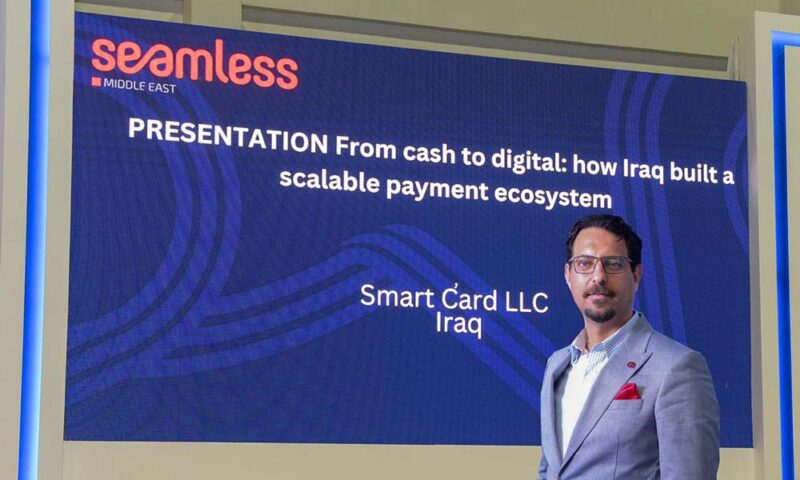
Currently, Qi Card serves more than 12mn Iraqis
On the conclusion day of the Seamless Fintech Middle East Forum, Qi Card, Iraq’s largest fintech company, took centre stage, presenting its pivotal role in transitioning the nation from a cash-dependent society to a digitally connected economy.
Chief Investment Officer Ahmed Khadum delivered a keynote titled ‘From Cash to Digital: How Iraq Built a Scalable Payment Ecosystem’, sharing insights on how Qi Card helped design and lead one of the Middle East’s most ambitious national fintech transformations.
Established in 2007 through a strategic public-private partnership between International Smart Card (ISC) and the Iraqi financial institutions, Qi Card has grown from a basic payment card into a wide-ranging financial services consortium.
“Our vision extends beyond Iraq — it is about serving broader communities and contributing to humanity at large. I am personally committed to ensuring that both my efforts and our projects make a meaningful impact on people’s lives,” stated Bahaa Abdul Hadi, the Chairman and Co-Founder, Qi Card, also known as the International Smart Card.
Active engagement
“Our next phase of expansion is focused on the UAE, where we are actively engaging with both public and private sector stakeholders. We are preparing to launch a range of initiatives spanning fintech, insurtech, logistics, and payments, along with several programs aimed at giving back to society,” Bahaa added.
Currently, Qi Card serves more than 12mn Iraqis, including government employees, pensioners, private sector workers, and social service communities. Its key services span salary disbursements, personal loans, digital banking tools and biometric security.
“Our story is not just about technology; it’s about national resilience. That’s the model we’re sharing in Dubai to the global community of financial technology, how to enable modern financial services under pressure, with purpose, and at scale,” remarked Ahmed Khadum, Chief Investment Officer, Qi Card.
